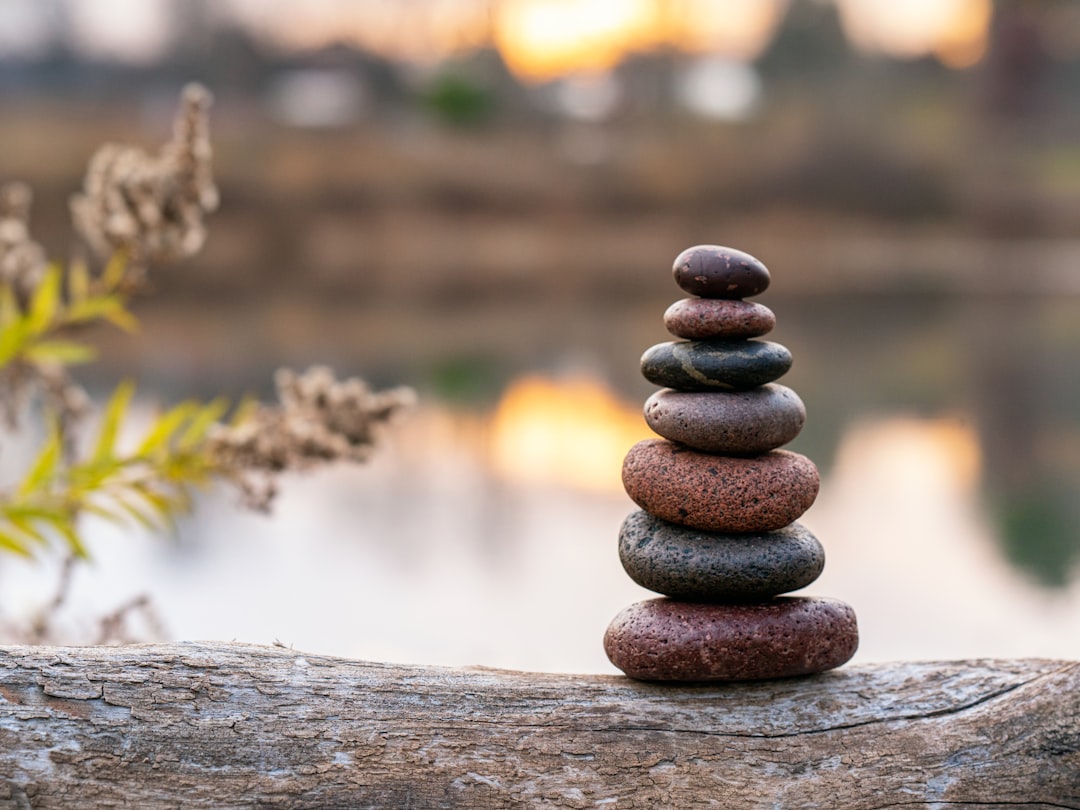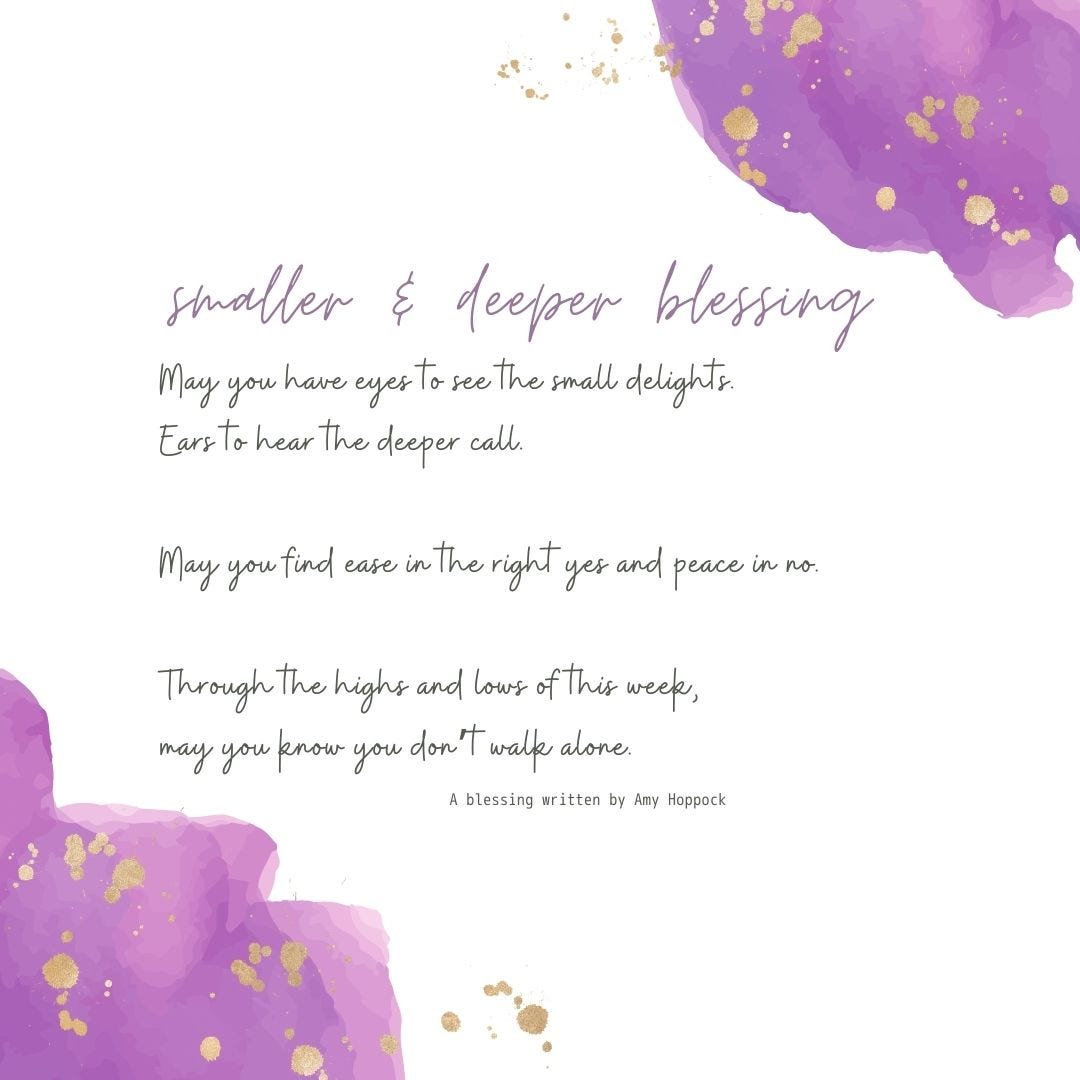So let us pick up the stones over which we stumble, friends, and build altars. Let us listen to the sound of breath in our bodies. Let us listen to the sounds of our own voices, of our own names, of our own fears. Let us name the harsh light and soft darkness that surround us. Let’s claw ourselves out from graves we’ve dug let’s lick the earth from our fingers. Let us look up, and out, and around. The world is big, and wide, and wild and wonderful and wicked, and our lives are murky, magnificent, malleable and full of meaning.
-Daily Prayer with the Corrymeela Community, Pádraig Ó Tuama
I came across this quote from Pádraig Ó Tuama this week. I wrote about it here in my Lenten Collect series.
These words are smaller and deeper. Such a gentle invitation to “pick up the stones over which we stumble.”
There are so many invitations. What is your invitation in these words?
pick up the stones that cause you to stumble…
listen to the breath in your body…
listen to your name…
listen for your fears…
look-up, out or around…
Let whatever stands out to you be your invitation for the upcoming week.
Pick up a stone that causes you to stumble…
Notice it’s not throwing the stone out of the way; it’s just picking it up. In other words, notice what causes you to stumble, be a curious observer. Then build an altar. It’s not about perfection; it’s about progress.
Listen to the sound of breath in our bodies.
Slow down, breath deeply. Savor the rise and fall of the breath. Follow the breath as it enters and when it leaves. It takes just a few minutes of focusing on your breath to bring calm and peace.
Listen to the sounds of our own voices, of our own names, of our own fears.
Maybe this is your invitation to listen to your thoughts. So many of our thoughts are not accurate or helpful. It’s good to slow down and remind ourselves not to believe everything we think. Sometimes I find it helpful to ask myself, “but, is it true?” Try asking yourself that question for a week about your thoughts.
May you, with curiosity and joy, pick up a stone that you stumble over. May you breathe deep while you look up, in and out. May you find smaller and deeper moments that surprise and bless. May you see with clear eyes your big, wild, murky, messy, beautiful life…that is yours.
I learned this week about the practice of Welcoming Prayer (in the book I finished this week-see below for more details!) It feels like it might be a helpful practice to join with the quote from Pádraig.
To learn more about the practice, follow this link. You’ll see how to practice (it’s really simple!) and some of the history behind The Welcoming Prayer.
Recently Finished:
The Wild Land Within: Cultivating Wholeness through Spiritual Practice by Lisa Colón DeLay
This is a five-star book for me. Lisa DeLay is a Spiritual Director and draws on practices from the Eastern Orthodox church and ancient spiritual wisdom from the desert Fathers and Mothers. It’s an approachable book that demonstrates how to use these practices in practical and helpful ways. She writes in chapter one, “This book will attempt to disrupt common presumptions of white-centeredness that often remain unchallenged and unnoticed. For insights into trauma, grief, suffering, and spiritual formation, we will learn from some groups whose spirituality has often been forged in the furnaces of suffering, poverty, oppression, and colonization. Theologians such as Gustavo Gutiérrez, Ada Maria Isasi-Diaz, George Tinker, James H. Cone, Barbara A. Holmes, Phuc Luu, Wilda Gafney, Fred Shuttlesworth, and others.” I highly recommend this book.
“In the East, the inherent goodness of all God created and the human dependence on God are at the core of theological understanding. It is the starting point for understanding ourselves. We begin in wholeness, not deficit.”
-Lisa Colón DeLay

I try to pay attention to words or phrases that stand out in my reading and listening. There is a spiritual practice called Florliledgium that collects short, interesting pieces {words that “sparkle” up} and puts them together. This is kind of like that. Watching for things that sparkle. Gathering them and seeing how they work together and what message, mantra, or new idea might arise.)
A Practice:
Read slowly.
Notice if a word or phrase stands out to you.
How do the words make you feel?
Is there an invitation?
(I’m sharing the lines that stand out to me in these passages in italics. Maybe it’s the same, or perhaps it’s different. There is much food for thought in each of these passages)
So many things disguise themselves as hope. So much crosses our threshold, promising change or relief from present circumstances, that sometimes it becomes difficult to tell the difference between hope and a misguided delusion…Hope becomes easier to recognize when we learn that it rarely comes from outside us. More often it comes from within, emerging from the place where our deepest longing meet our willingness to make them real. In that place hope sheds its disguises, moving with grace and freedom to point us beyon our delusions toward the landscape of possibiltiy.
-Jan Richardson Night Visions
“Letting there be room for not knowing is the most important thing of all. When there's a big disappointment, we don't know if that's the end of the story. It may just be the beginning of a great adventure. Life is like that. We don't know anything. We call something bad; we call it good. But really we just don't know.”
― Pema Chödrön, When Things Fall Apart: Heart Advice for Difficult Times
“In the stillness of quiet, if we listen, we can hear the whisper of the heart giving strength to weakness, courage to fear, hope to despair.”
― Howard Thurman
“I want to think again of dangerous and noble things.
I want to be light and frolicsome.
I want to be improbable beautiful and afraid of nothing,
as though I had wings.”
― Mary Oliver, Owls and Other Fantasies: Poems and Essays\








